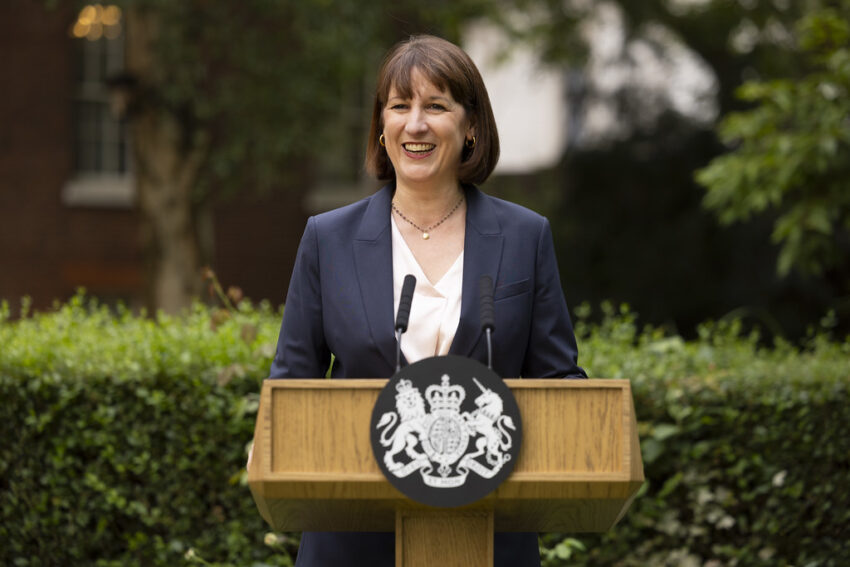As the leaves turn crisp and golden this October, the nation’s business owners will be bracing themselves for a political event that could redefine their future: the unveiling of Rachel Reeves’ first budget as Chancellor of the Exchequer.
Reeves, a figure who has climbed the Labour ranks with a reputation for being both sharp and shrewd, has now ascended to one of the most critical positions in government. But should British business owners be quaking in their boardrooms, wondering what she has up her sleeve?
Rachel Reeves, the first female Chancellor since the office’s creation in 1316 (yes, even that’s older than Mick Jagger), comes with an air of gravitas that suggests she’s not in this for a ceremonial tea party. No, Reeves means business—literally. Her background as an economist at the Bank of England and her tenure as Chair of the Business, Energy and Industrial Strategy Committee imply that she knows her way around a spreadsheet. But here’s the rub: it’s not her competency that’s in question; it’s her ideology.
For years, business owners have been habituated to the Tory playbook of tax cuts and deregulation—a steady drip-feed of policies designed to keep the wheels of capitalism greased and spinning. Reeves, however, has signalled a departure from this laissez-faire approach, advocating for what she calls “responsible capitalism.” The phrase itself sounds almost quaint, as if she’s promising to take the wild, reckless teenager that is British capitalism and turn it into a sensible, well-behaved adult. But is that really what business needs?
Let’s get one thing straight: businesses thrive on certainty. And while Reeves has vowed to maintain a competitive tax regime, she’s also made it clear that she intends to crack down on tax avoidance, increase public investment, and push for a more equitable distribution of wealth. On paper, these goals are laudable—who wouldn’t want a fairer society? But in practice, they may spell trouble for those who have grown accustomed to the status quo.
Take, for instance, Reeves’ plan to close the loopholes that allow multinationals to shift profits offshore and avoid paying their fair share of tax. It’s a noble endeavour, but one that could have unintended consequences. Companies that have relied on these mechanisms to maximise profits might find themselves in a tighter financial bind, forced to cut costs or, worse, consider relocating to more tax-friendly jurisdictions. The fear is that Reeves’ brand of responsible capitalism could lead to a flight of capital, with businesses seeking refuge in countries where the taxman’s reach isn’t quite so long.
Then there’s the issue of public investment. Reeves has committed to ramping up spending on infrastructure, green energy, and technology—areas that are undoubtedly in need of a cash injection. However, the question that looms large is: who’s footing the bill? If Reeves opts to fund these projects through borrowing, she risks increasing the national debt, which could lead to higher interest rates and inflation. On the other hand, if she decides to raise taxes—particularly on higher earners and corporations—she might stifle the very entrepreneurship and innovation she’s aiming to support.
And let’s not forget her commitment to workers’ rights. Reeves has promised to strengthen labour laws, enhance job security, and ensure that the minimum wage keeps pace with the cost of living. Again, these are commendable goals, but they come with a price tag for employers. Increased regulation and higher wage costs could force some businesses, particularly SMEs, to make tough choices—either absorb the costs and take a hit to their profit margins or pass them on to consumers in the form of higher prices. Neither option is particularly appealing in an economy already grappling with the cost-of-living crisis.
But perhaps the most significant concern for business owners is the broader economic environment in which this budget will be delivered. The UK economy is still reeling from the effects of Brexit, the pandemic, and the war in Ukraine. Inflation remains stubbornly high, and growth has been sluggish at best. Reeves’ budget will need to walk a tightrope—stimulating growth without overheating the economy, supporting the most vulnerable without deterring investment.
Yet, for all the uncertainties, there’s a case to be made that Rachel Reeves’ approach could be exactly what the UK economy needs. The past decade has seen a growing divide between the haves and the have-nots, with wealth concentrated in the hands of a few while many struggle to make ends meet. By addressing these inequalities and investing in the future, Reeves could lay the groundwork for a more sustainable and resilient economy—one where businesses can thrive in the long term, rather than merely surviving from quarter to quarter.
So, should UK business owners be worried about what Rachel Reeves has up her sleeve? The answer is: it depends. If they’re willing to adapt, innovate, and embrace a more responsible form of capitalism, they might find that Reeves’ budget offers new opportunities rather than threats. But for those who’ve grown comfortable with the old ways of doing things, this new chapter in British economic policy might just be a wake-up call. After all, as the saying goes, change is the only constant—and in the world of business, those who fail to adapt are often left behind.
In the end, whether Reeves’ budget is a boon or a bane will depend not just on the numbers she presents in October, but on the response of the business community. Will they see her as a harbinger of doom or a catalyst for positive change? Only time will tell. But one thing’s for sure: this autumn, all eyes will be on the Chancellor—and what she pulls out of her proverbial hat.


